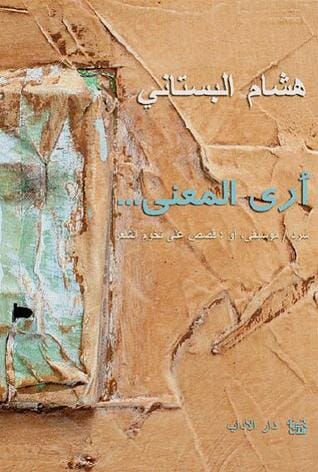Hisham al-Bustani’s ‘Apocalypse Now’
The literary magazine CutBank, launched in 1973, is a literary magazine produced by creative writing graduate students at the University of Montana in Missoula. In Issue 80, they’ve published an excerpt from Hisham Bustani’s novel The Perception of Meaning titled “Apocalypse Now.” Editor-in-chief Rachel Mindell talked about the magazine’s relationship to translated literature.
The excerpt, “Apocalypse Now” is currently live on the CutBank website.
 ArabLit: Is CutBank generally interested in translated literature?
ArabLit: Is CutBank generally interested in translated literature?
Rachel Mindell: Cutbank’s interest in translation is well-established and long-standing. From the second issue forward, the magazine has been proud to include translated works of literary merit.
CutBank 14, published in 1980, was a special issue comprised solely of translations. Containing work from eighteen countries, this issue included poetry by Faiz Ahmed Faiz and Forugh Farrokhzad. As the editors of this issue, Sara Miller and Don Schofield, remarked in their introduction, “We do not believe that the narrowing gap between cultures requires the adoption of a common language exclusively. On the contrary, English-speaking readers are now more than ever obliged to meet and understand the nature of literature around the world.” To this day, CutBank aims to provide a forum for world literature that might accompany and enhance our celebration of contemporary writing in English.
AL: Can you talk about why you decided to publish “Apocalypse Now.”
RM: Our editors were drawn to this piece for several reasons. First, the poetic reimagining of two culturally significant takes on colonization, diaspora and war (Apocalypse Now and thus, Heart of Darkness) seemed to us important, timely and creatively negotiated. We appreciated the multiple frames that contributed to this piece.
Secondly, we debated over how to classify the work, since it seemed to evade conventional genre designations, like poetry, fiction and nonfiction. The piece functioned as a hybrid, which challenged us and ultimately resulted in its acceptance. Further, the translated language was powerful, violent, emotionally charged, beautiful and mysterious – in English the text was compelling; understood to be a translation, it was even more captivating. We debated over the framing devices (was there already too much out there on this topic? on these texts?) and how, if we published this work, we could classify it. We finally decided to go for it, to call it simply a “translation,” and to share it with CutBank readers who we felt would appreciate its innovation and lyricism.

April 2, 2014 @ 12:47 pm
Apocolypse Now is a wonderful read. Deep, descriptive of the pain, bloodshedding in the Middle East. To really understand this translated work, one must read it more than just once. It brings sorrowful pictures to the mind.
April 2, 2014 @ 12:48 pm
Regrets I spelled Apocalypse incorrectly! Thank you
April 3, 2014 @ 12:04 am
Happens to all of us! You should see my facebook statuses. I can correct it if you like, although I generally don’t like to edit users’ posts…it seems a slippery slope.